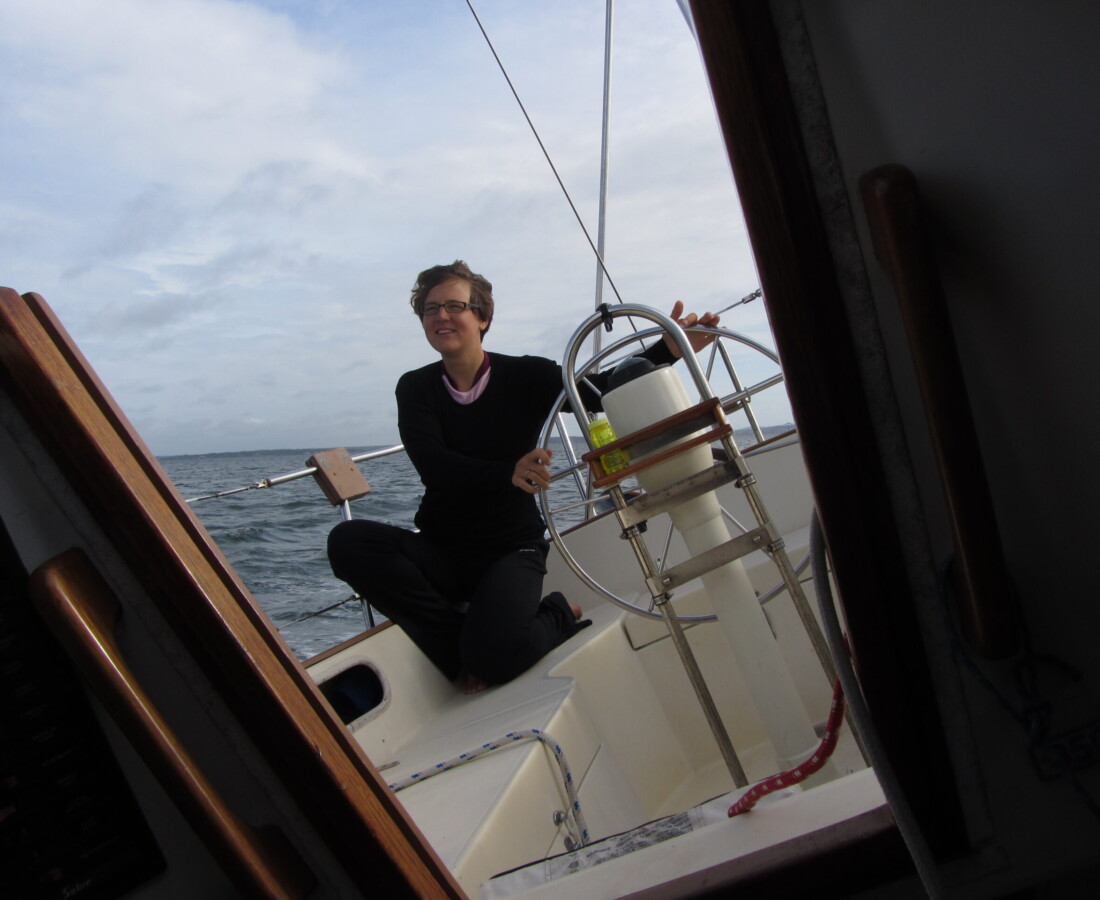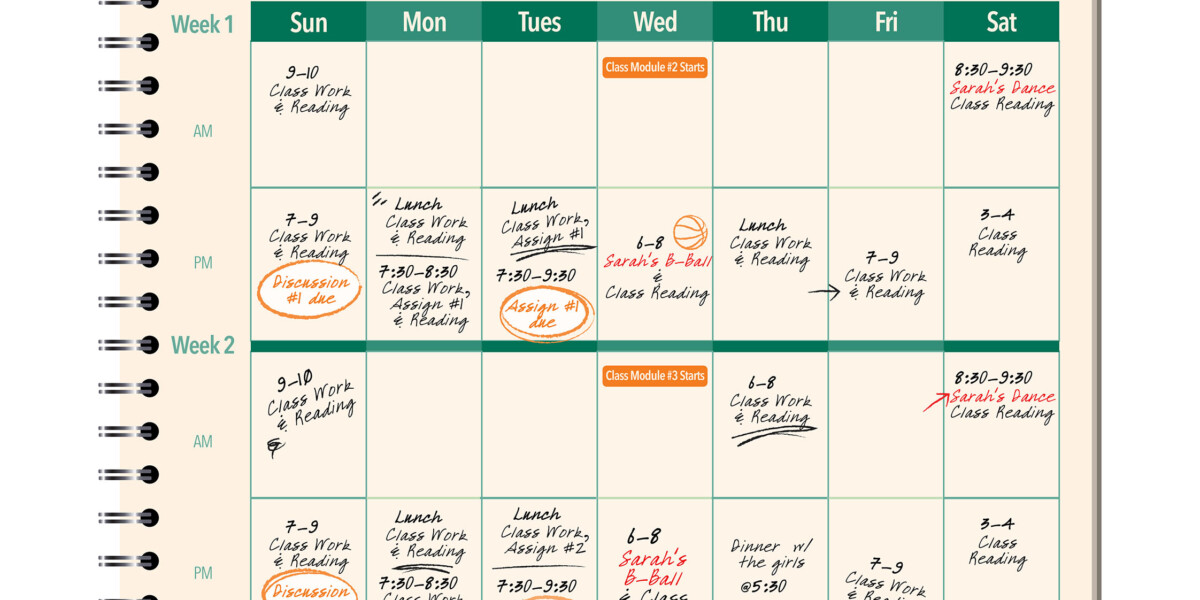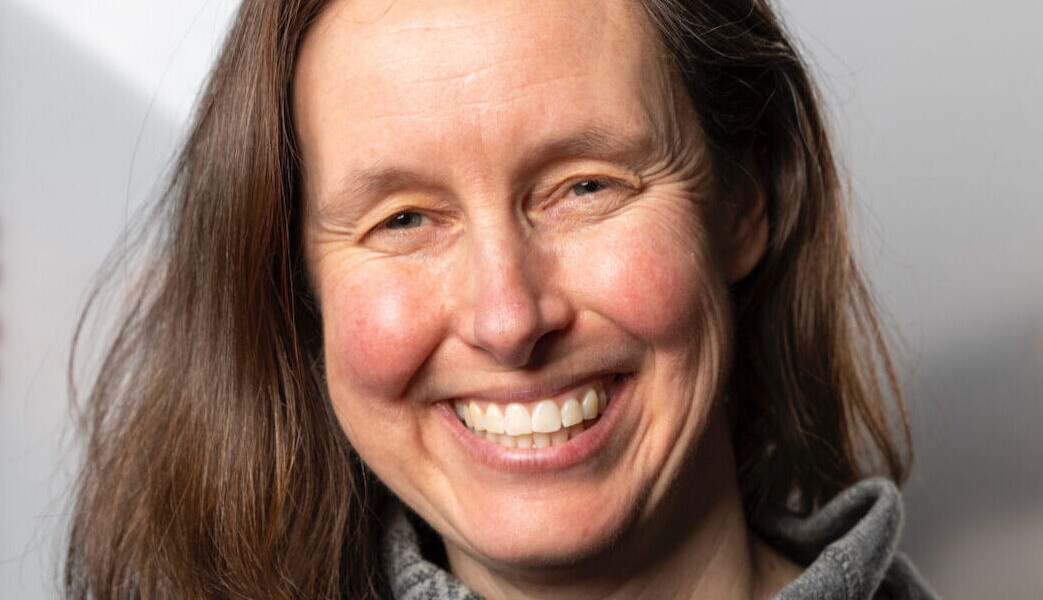Meg Klepack’s path to medical school might have seemed obvious. The daughter of a family doctor and a former nurse, coming from a long line of physicians on her mother’s side, Klepack seemed destined for medicine.
But she never saw herself as a doctor, in part because she admired her father so much. “He’s up on a pedestal in my mind,” she says.
Instead, after graduating from Cornell with a degree in natural resource management in 2004, she followed her interest in politics and the environment.
It took nine years for her to end up right back where she started: surrounded by doctors and nurses. In January 2013, she began the University of Vermont’s Post-Baccalaureate Premedical Program.
“I started walking down the path, and I said, ‘Let’s see where this goes.’ I’ve allowed it to unfold without getting too stressed out about it,” she says. “It has been an exercise in faith. This is going to go where it’s going to go. I’m just going to do my best.”
Her best, it turns out, was a 4.0 GPA. She applied to medical school and got in. She starts at the UVM College of Medicine in the fall.
From Presidential Politics to Local Food Systems
But a few years ago, Klepack thought she was headed for a career in food systems policy.
It was not something she had envisioned even when she graduated from Cornell. Back then, “nothing was more important to me than working to defeat George Bush, so I moved to southeast Ohio.” For three intense months leading up to the 2004 presidential election, she worked on the Kerry-Edwards campaign in that critical swing state.
After the Democrats lost, she “had no idea of how to find a job as a young person,” so she landed an internship with the Natural Resource Defense Council in Washington, D.C. From there, she headed to Vermont as part of a two-year fellowship with the Public Interest Research Group (PIRG), an activist, grassroots consumer group with branches in many states. She was assigned to work as a community organizer for Toxics Action Center in Montpelier.
“I fell in love with Vermont. I thought I was meant to live here,” she says.
Working in the Heart of the Local Food Movement
Klepack’s next job was as an office manager for the Northeast Organic Farming Association (NOFA) of Vermont in Richmond. But she created a position that transcended entering data and answering phones. She became outreach manager, honing NOFA’s marketing messages and brand and connecting the organization with a wider audience through the web and social media.
“I felt like I put myself through grad school in organic farming in a year and a half,” she says. “I was connecting with organic farmers and farmers’ markets all over Vermont and organizing and attending workshops and conferences.”

At NOFA from 2006 to 2009, Klepack found herself deep in the middle of the local food movement in Vermont at a time when the entire country was starting to pay attention. Michael Pollan had just published The Omnivore’s Dilemma. Bill McKibben, the voice of the global warming movement, had spent a year eating only local Vermont food to research his 2007 book Deep Economy. And Barbara Kingsolver and her family also had eschewed big-industry food, telling their story in Animal, Vegetable, Miracle.
“It was exciting to work at NOFA at that time because people were really paying attention to local farms and foods like they hadn’t done for a long time,” Klepack recalls.
The NOFA job was only part-time, so she took on two other jobs to spend more than 40 hours a week absorbing all she could about organic farming and local food. She was hired to develop Burlington Winter Farmers’ Market, and she worked as a research technician for UVM’s Plant and Soil Science Department.
“The food system is a complex system, and I felt the more vantage points I could get into, the more I could build a base of knowledge about the market side of things, the research side of the things, the nonprofit side of things, because you don’t want to work in a vacuum,” she says. “I didn’t know ultimately where I would go. I saw myself working in a food systems role, in policy. I was really interested in how we develop the economic system to allow consumers to buy from local farms.”
Through her organic farming connections, Klepack found her way to her next job, as outreach and local food manager at City Market/Onion River Co-op in Burlington. She also facilitated the Burlington Food Council, which brought together 20 organizations working on various aspects of the local food system, and served as a board member for the Intervale Community Farm, a CSA (Community Supported Agriculture) in Burlington.
“It was really rewarding,” she says. “Suddenly, the work I was doing was positive. The food system has implications for climate change and wildlife corridors and water systems and all the things I care about.”
Stop, Take a Deep Breath and Reshift
But after nearly a decade of being deeply immersed in work she really cared about, Klepack felt it was time for a change. She stepped back and realized “there is a difference between working on good issues and what my day-to-day life looked like, and while I really loved the issues, in the day-to-day work, I’m coordinating yet another event, and it was hard to see if I was making any progress. I still was at my computer a whole lot, still working by myself. I wanted a job that was more satisfying to me on a daily basis. I thought, ‘Maybe I need a career change.’ ”
As she started considering various careers, she looked back to her upbringing – where family dinners often centered on patient care or health insurance — and “medicine was the first thing that came to me.” So she began shadowing doctors. She discovered she might actually make a good doctor. And she discovered that her father had always thought that as well.
What finally sold her was “that aspect of medicine that involves the day-to-day connecting with people and helping them with the different crises in their lives: deaths and births and big health problems. There are some interesting social connections that come from those times.”
In Love With Going Back to College
Once Klepack left her job and found herself plunged into UVM’s Post-Bac Premed Program, she knew she had made the right choice.
“I fell in love with going back to school. As an adult learner, I was a thousand times more curious than I was as an undergrad,” she says. “I loved the program. There were three of us who became this little family inside the Post-Bac Premed Program. We would attend all our classes together, we would eat together, and we would study together. The three of us supported each other.”
Yet she won’t be leaving her local food systems work behind. She believes she will draw on her knowledge and experience as she begins a career in health care.

“There is clearly a growing awareness in the health care system that diet-related health conditions should be addressed through the local food system, by increasing the availability and affordability of fresh, local foods. There also are issues involving environmental health,” she says. “There are so many crossovers between the work I’m doing now and what I’ve done in the past. After all, we live in a system.”
She already has explored the area of public health, which has interested her since her days working with the Toxics Action Center to reduce environmental pollution. She took a course through UVM’s Master of Public Health Program and later worked as a teaching assistant in the online program, moderating student discussions and grading blog posts in Dr. Jan Carney’s “Public Health & Health Policy” course and Dr. Betty Rambur’s “Organization & Finance of Health Care” class. She also assisted Dr. Lynn Zanardi Blevins with a one-hour, online undergraduate course on “Careers in Public Health.
Besides public health, Klepack is drawn to family medicine and primary care. Still, she wants to keep an open mind going into med school, absorbing every new topic that comes her way.
“We all have to continue to listen to our hearts as we walk down the path,” Klepack says. “What’s really important is to check in with ourselves and see if this is the right thing to do. Right now, I’m enjoying what I’m doing, and I want to do more of it.”





